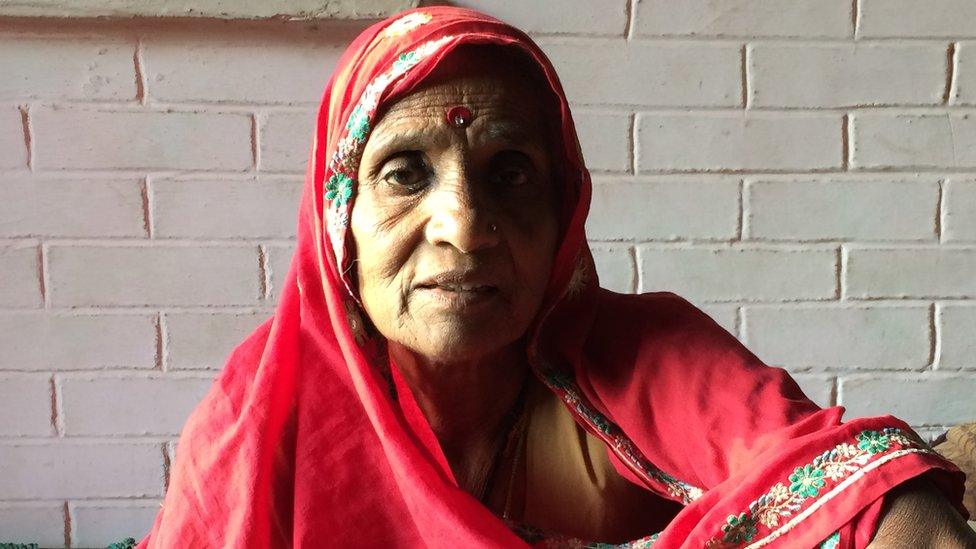Rape in India: How Rahul Gandhi and Narendra Modi both made it a political issue
- Published
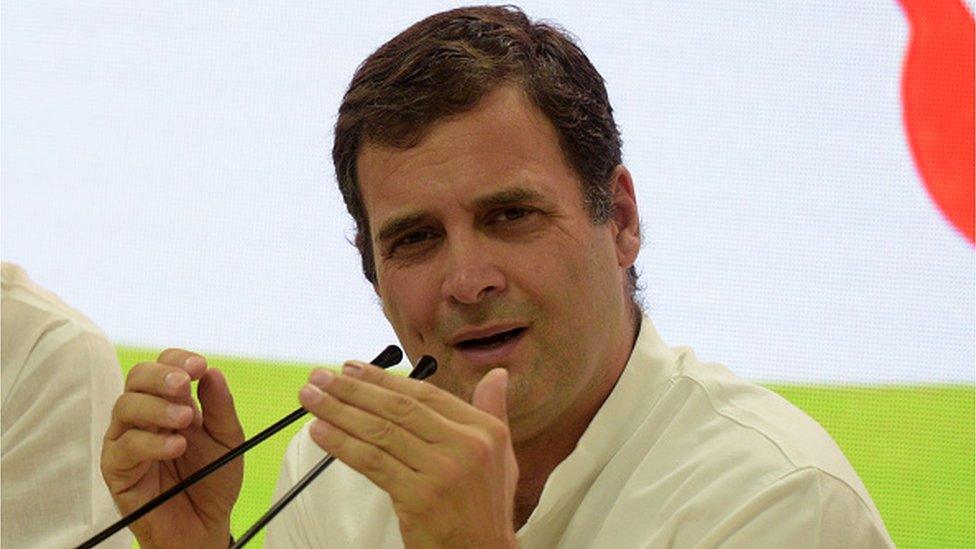
Rahul Gandhi has been accused of tarnishing India's image
The issue that exercised Indian MPs in parliament on Friday was "rape in India" - but not for the reasons one would think.
Parliament was repeatedly adjourned over opposition Congress party leader Rahul's Gandhi's comment on rape at an election rally a day earlier.
Talking about the growing incidents of brutal crimes against women in the country, Mr Gandhi had said that Prime Minister Narendra Modi speaks about "Make in India, but nowadays wherever you look, it is Rape in India".
"Make in India" is a government project aimed at making the country a global manufacturing hub.
Several MPs from Mr Modi's governing Bharatiya Janata Party (BJP) accused Mr Gandhi of "insulting India", and said his turn of phrase could almost be taken as an invitation to rape Indian women, and demanded that he apologise for his remark.
But Mr Gandhi refused to say sorry - he instead pointed out that Mr Modi himself had described Delhi as the "rape capital" several times when the BJP was in opposition. As proof, he tweeted a video clip from Mr Modi's election campaign before the 2014 general election:
Allow X content?
This article contains content provided by X. We ask for your permission before anything is loaded, as they may be using cookies and other technologies. You may want to read X’s cookie policy, external and privacy policy, external before accepting. To view this content choose ‘accept and continue’.

Mr Gandhi also said that BJP MPs were trying to disrupt parliament over his rape remark because they wanted to divert attention from real issues like the country's economic slowdown and the controversial Citizenship Amendment Bill which has angered parts of the country.
India has hit global headlines in recent weeks over its treatment of women, especially after a 27-year-old female vet was gang-raped and murdered in the southern city of Hyderabad. Her body was later set on fire.
Her death was also raised in parliament when MPs from across the political spectrum condemned the attack. One MP even called for the rapists to be "lynched".
Days after the Hyderabad incident, an alleged victim of gang-rape was burnt alive by her attackers when she was heading to a hearing.
And on Monday, a court is due to rule on rape charges involving a legislator from Mr Modi's party.
At Thursday's rally, Mr Gandhi accused the prime minister of keeping quiet about this case, even after the woman was seriously injured in a suspicious road accident in which two of her aunts died and her lawyer was seriously injured.
There is some merit in that accusation - in recent months, Mr Modi's silence on issues of violence against women has been deafening.
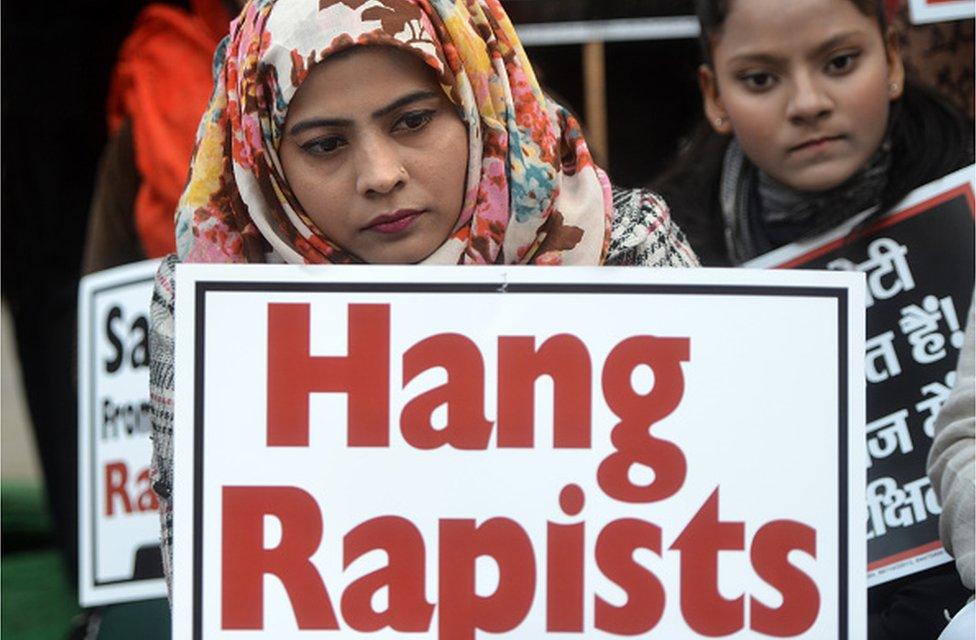
India has hit global headlines in recent weeks over its poor treatment of women
His absence was also noted in parliament on the day outraged MPs raised the gang-rape and murder of the Hyderabad vet.
Before the 2014 elections, Mr Modi had often talked about women's safety. In December 2013, he had even asked people to remember the Delhi bus rape victim before voting, external in assembly elections.
Just days after he took over as the prime minister in May 2014, his government announced a "zero tolerance" policy , externaltowards violence against women.
And in August 2014, while addressing the nation from the Red Fort in his first Independence Day speech as prime minister, Mr Modi had condemned sexual violence against women and offered parents some advice on how to bring up better sons. He spoke about societal and family responsibility in ending rapes, telling parents to question their sons more.
His speech had given hope to many that things might finally get better for women in India.
But a look at the recently-released government crime data belies that hope - because on average, in 2017, a woman was raped every 15 minutes in India.
Mr Modi's promises are now beginning to sound like nothing more than empty words to many people.
What India's women want is less politics and cosmetic outrage; and some concrete action to make the country safer for half of its population.

Read more from Geeta Pandey

- Published6 December 2019
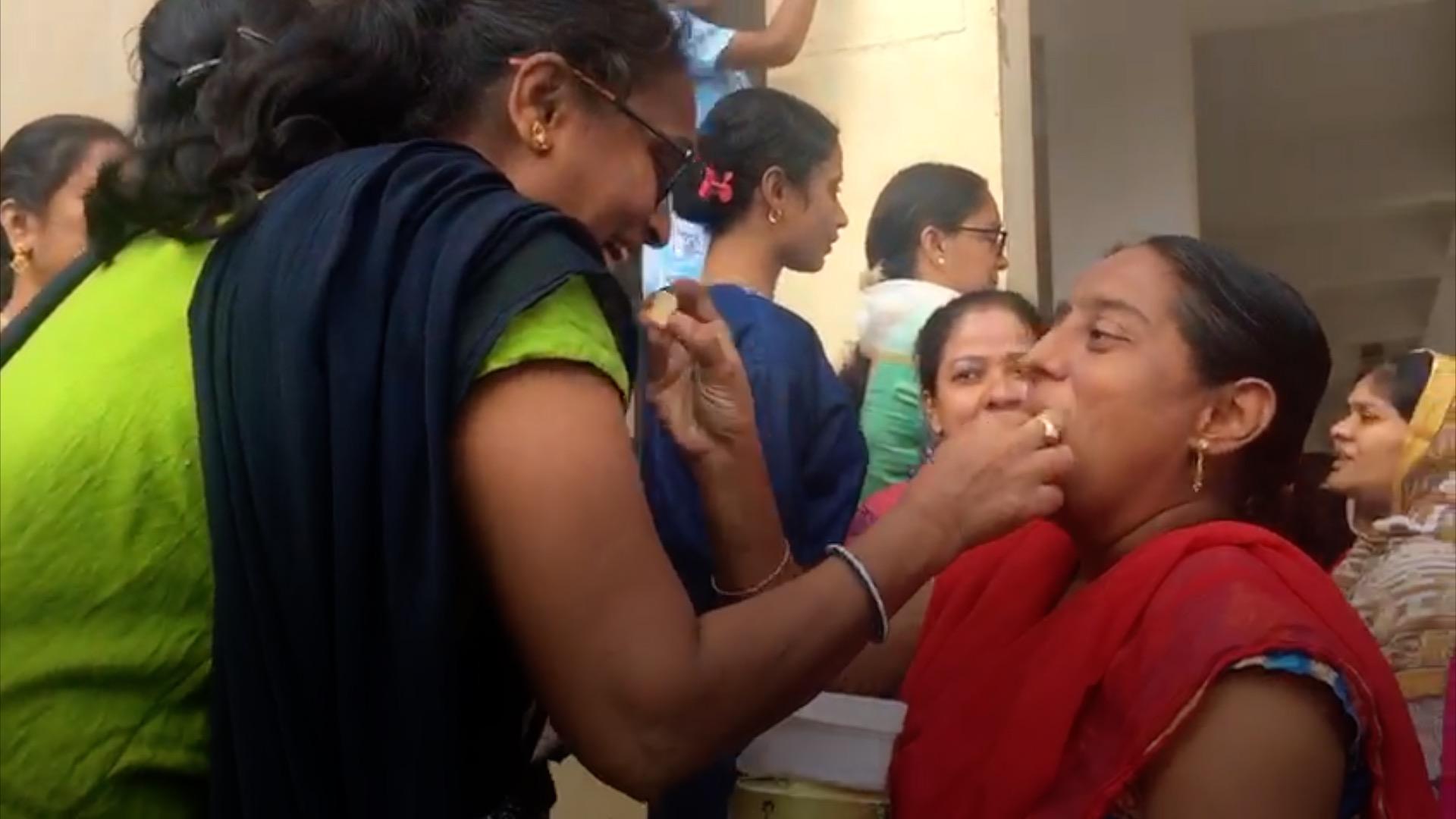
- Published16 December 2017
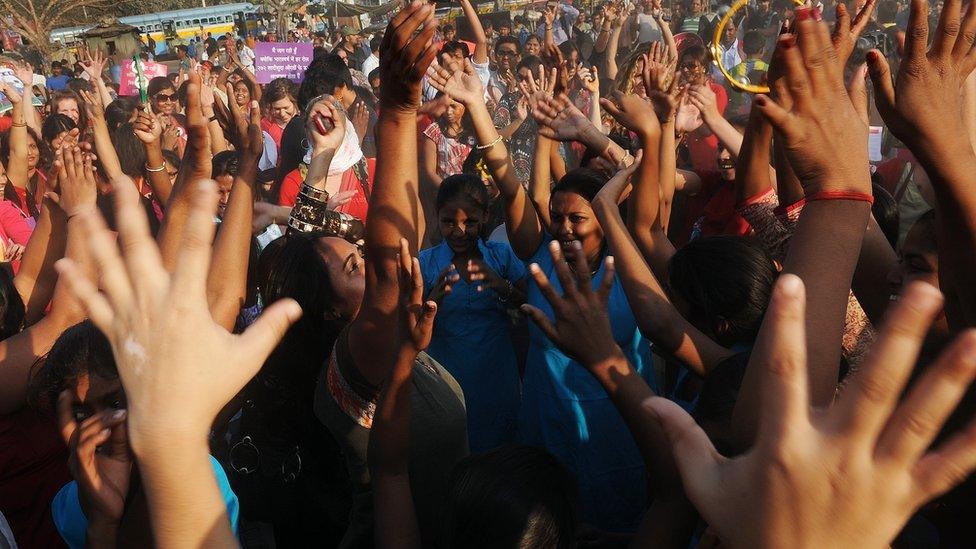
- Published17 March 2017
